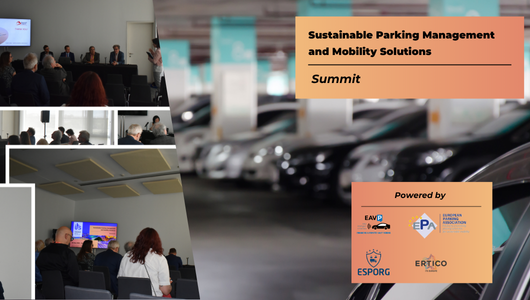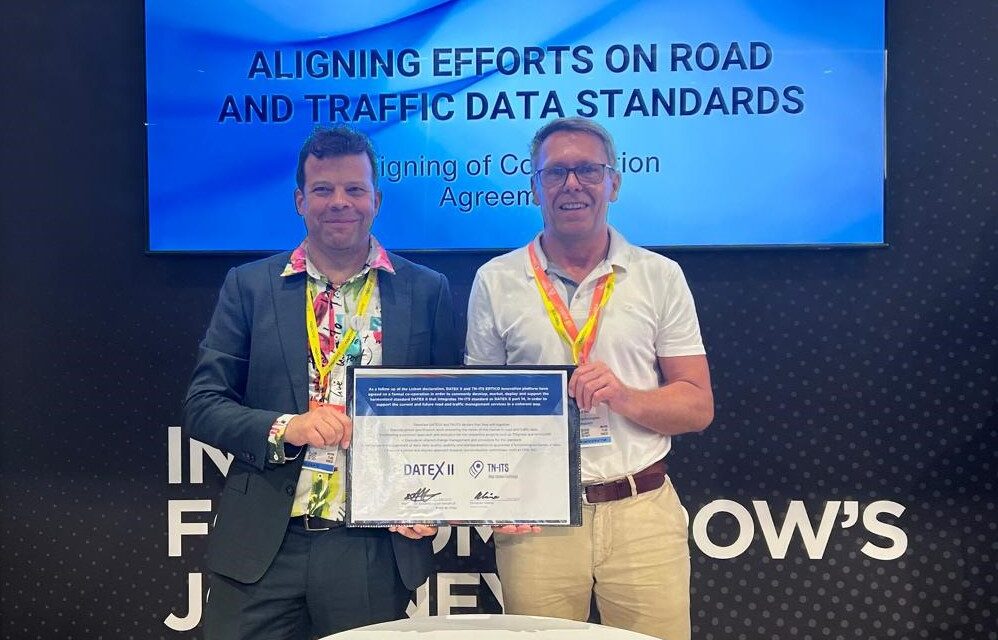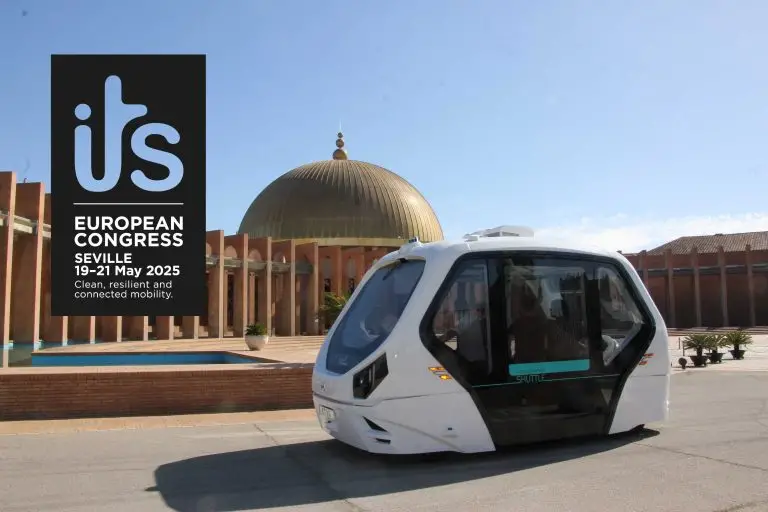Seville, 19 May 2025 – On the opening day of the 16th ITS European Congress, over 50 high-level delegates from across Europe convened at the Smart Mobility Summit of Cities and Regions to advance the transition to smart and climate-neutral urban mobility.
A flagship event of the ITS European Congresses, this year’s Summit brought together public sector officials – including administrators, mobility directors and project managers from cities and regions, national governments and European Commission members. The attendees were unified in their commitment to accelerating the adoption of smart, data-driven technologies and integrated transport systems to serve the needs of cities aiming for climate neutrality.
In his opening keynote Mr Moumen Hamdouch Head of Sustainable and Intelligent Transport of the European Commission highlighted the importance of ITS to the EU’s Mission Cities initiative. 100 cities from the 27 EU Member States and 12 cities from Horizon Europe associated countries have set targets to implement sustainable transport solutions to reduce emissions, enhance air quality, and increase the overall resilience of urban infrastructure in their bid to transition into smart and climate neutral cities by 2030. A total of 16 Mission Cities were at the Summit: out of the seven Spanish Mission Cities, five (Seville, Madrid, Barcelona, Valencia and Vitoria-Gasteiz) were also represented.
Priority areas for ITS innovation in urban mobility
The peer-to-peer roundtable discussions focused on four thematic priorities where ITS-linked innovation could provide beneficial solutions for public benefit. ERTICO-Chairman, Dr Angelos Amditis remarked, “By 2030, the vision is clear: we are striving toward a mobility system that is inclusive, sustainable, smart, and resilient. A system that leaves no one behind – not rural communities, not ageing populations, not the next generation. And this vision is no longer a distant goal, it is the work we must do now, together”.
For inclusive and sustainable mobility, matching policy goals with societal goals, integration of physical and digital services, and finding the right balance between too lax and overly prescriptive procurement and tendering processes was seen as key. The need for cooperation, still as relevant as ever, is essential. A good example is the Mobility Pact. The public and private sectors need to also cooperate for better regulation of mobility aspects that are considered ‘must have’ versus ‘good-to-have’. Inclusive mobility is sometimes difficult to measure and calibrate and data-based decision making should perhaps be balanced by decision-based data.
Traffic and mobility management is teamwork: the need for cities to coordinate with different stakeholders and across different levels of governing authorities was deemed essential. While there are high expectations for AI and machine learning to turn predictive elements to proactive ones, the human aspect remains central in data analysis. Traffic management has a digital backbone, but data alone cannot always explain use patterns as cultural aspects may account for the reliance on different modes at different timings. Using existing solutions and platforms to optimise speed of progress and reduce costs is highly recommended.
Cities are making progress on transport electrification through collaborative governance, strategic investment, and improved data sharing, though challenges remain in planning infrastructure and ensuring equitable coverage. Aligning with energy stakeholders, investing wisely amid evolving technologies, and leveraging national platforms like National Access Points (NAPs) for data coordination is vital. Despite improvements, city centres often lag in charging infrastructure, and better forecasting tools and public engagement strategies are needed to ensure inclusive, resilient, and future-proof electrification efforts.
Innovative aerial services and urban air mobility are emerging mobility technologies with great potential. Their integration into urban life, however, raises complex governance, societal, and ethical challenges. The discussion emphasised that readiness must go beyond technical maturity to include public acceptance, regulatory clarity, and urban relevance. To avoid past mistakes from too much or too little regulation, cities must lead with inclusive, context-sensitive strategies that prioritise co-creation, stakeholder coordination, and transparent impact assessment.
Call to action
Some common themes, such as cooperation across government levels and with the private sector, balanced policymaking, the need for investment, and citizen awareness, resonated among the four roundtable discussions. The consensus was that cities cannot do all alone. To ensure a just and successful transition, they called upon national governments, private sector leaders, and European institutions to strengthen partnerships, align policies, and co-invest in the future of urban mobility. Together, we must create the frameworks, incentives, and safeguards that enable sustainable, citizen-centered progress and adoption of the right ITS solutions.
Ms Minerva Salas López, Deputy Mayor of Seville City Council (European Funds, Sustainability, Strategic Plans, and City Projection) remarked in her closing speech, “ The climate emergency must be addressed in and from the cities, because this is where most emissions are generated –and where solutions must begin. Transforming Seville into a climate-neutral and smart city requires the commitment of all: public institutions, private partners, and citizens alike. Seville has committed to becoming climate-neutral by 2030, not as a symbolic gesture, but through concrete projects that reshape how we move, build, and live.”
Joost Vantomme, CEO of ERTICO-ITS Europe, who hosted the Summit, says, “This Summit is about empowering cities to take the lead in shaping the mobility systems of tomorrow. The level of expertise and commitment in the room gives us real momentum toward achieving the Mission Cities vision. ERTICO is committed to helping cities reach their mobility objectives of digitalisation and decarbonisation be it through our joint EU-funded projects, the ERTICO City Moonshot or through events such as this one during our ITS Congresses.”




